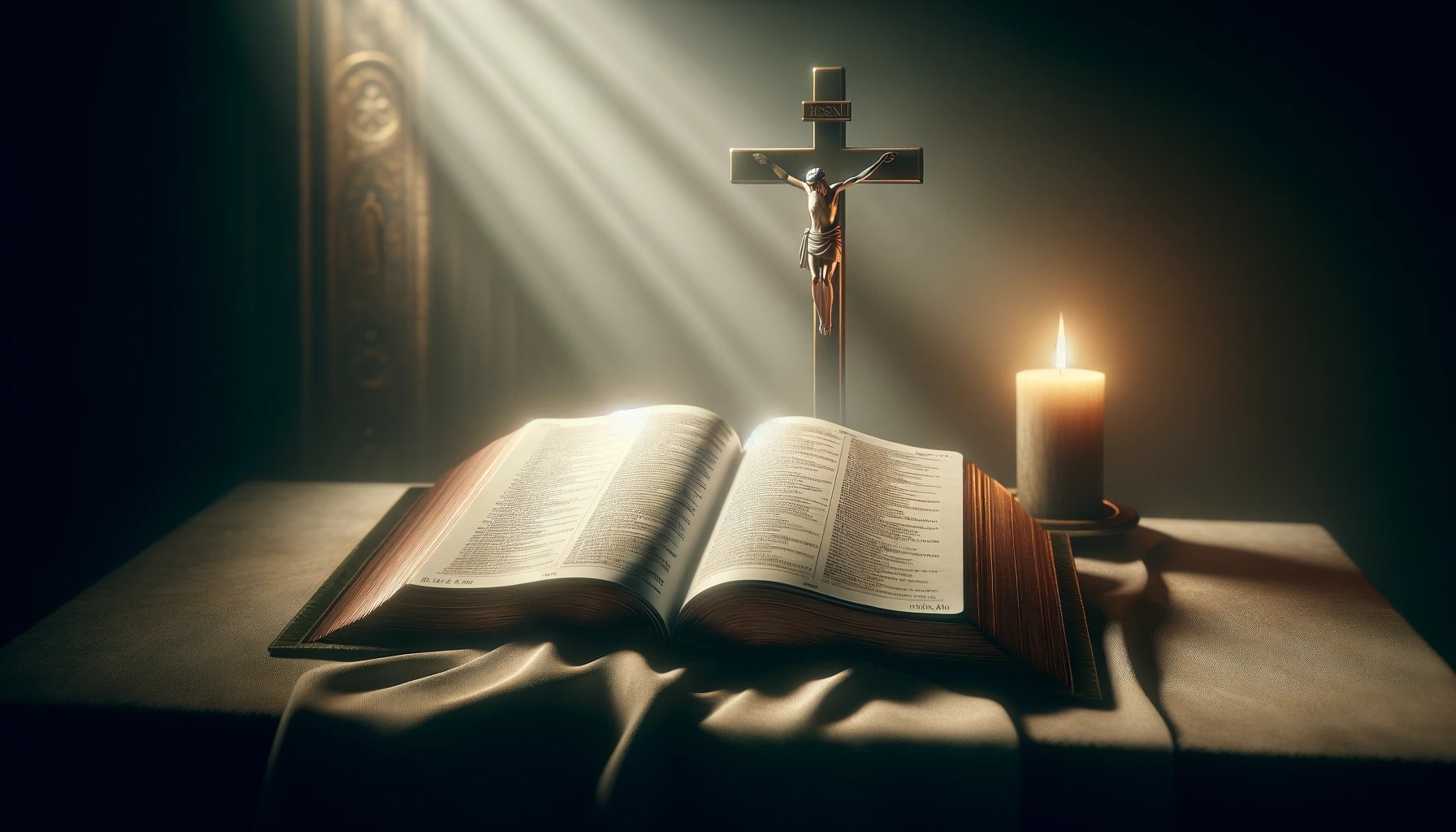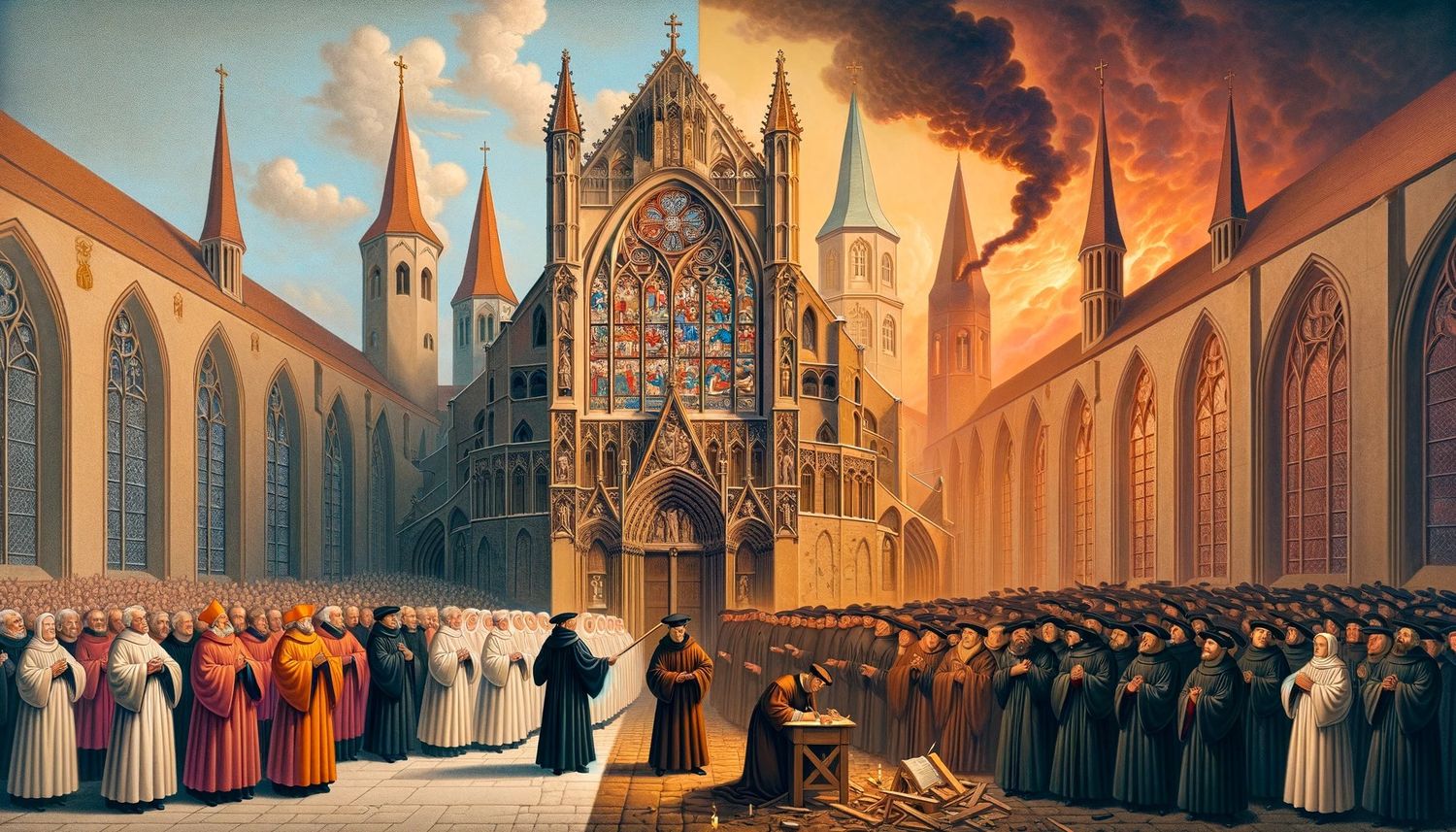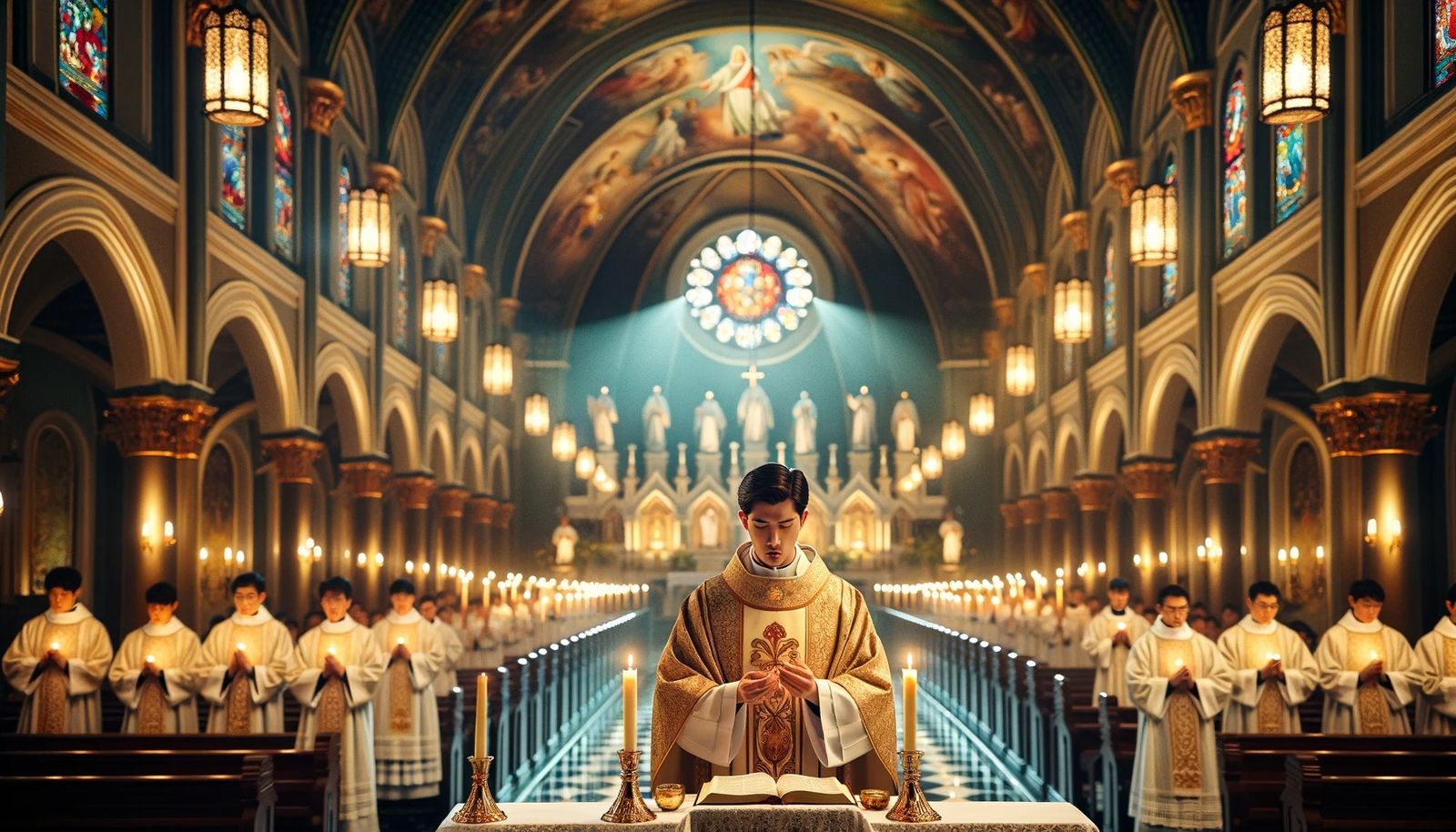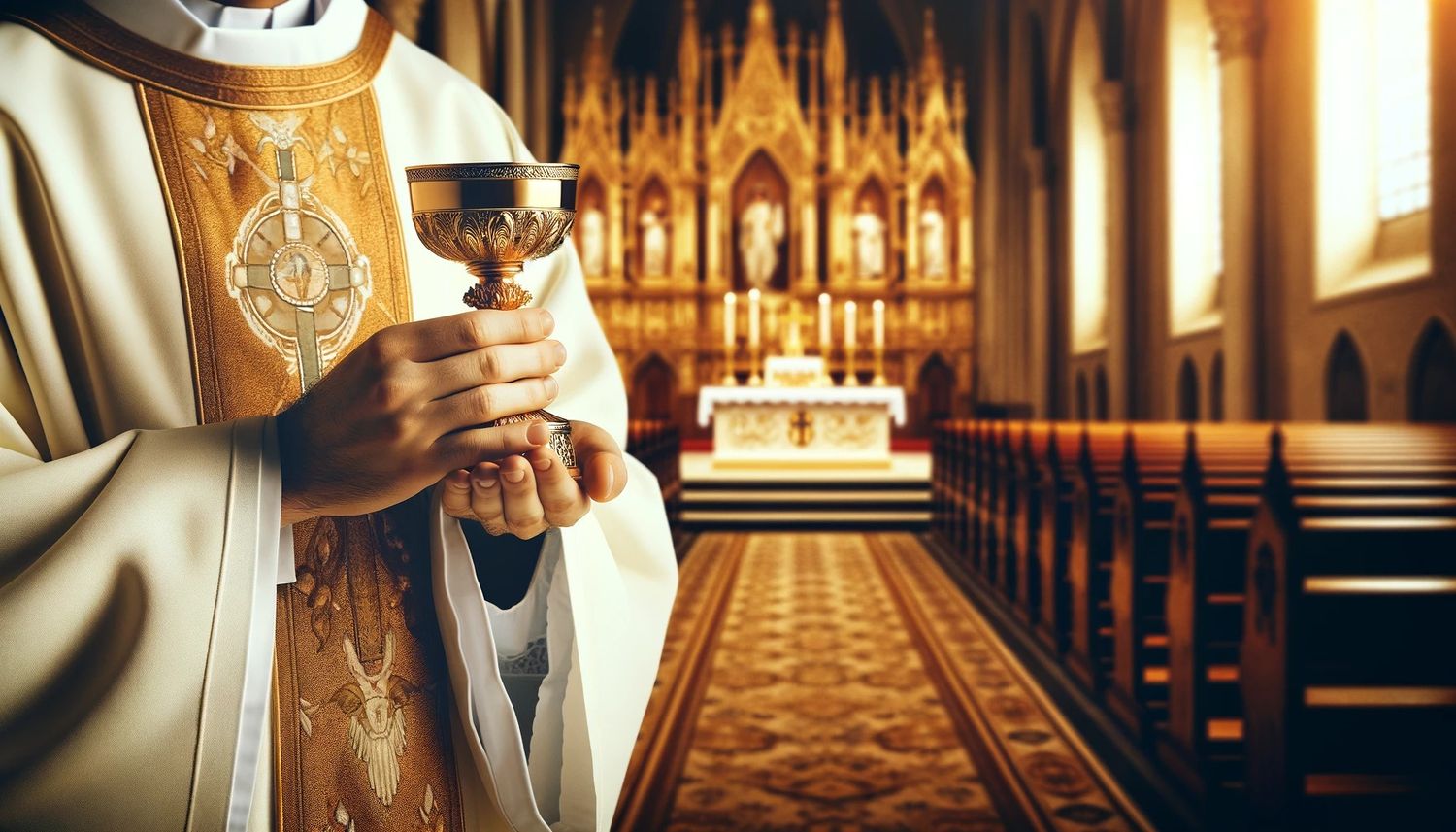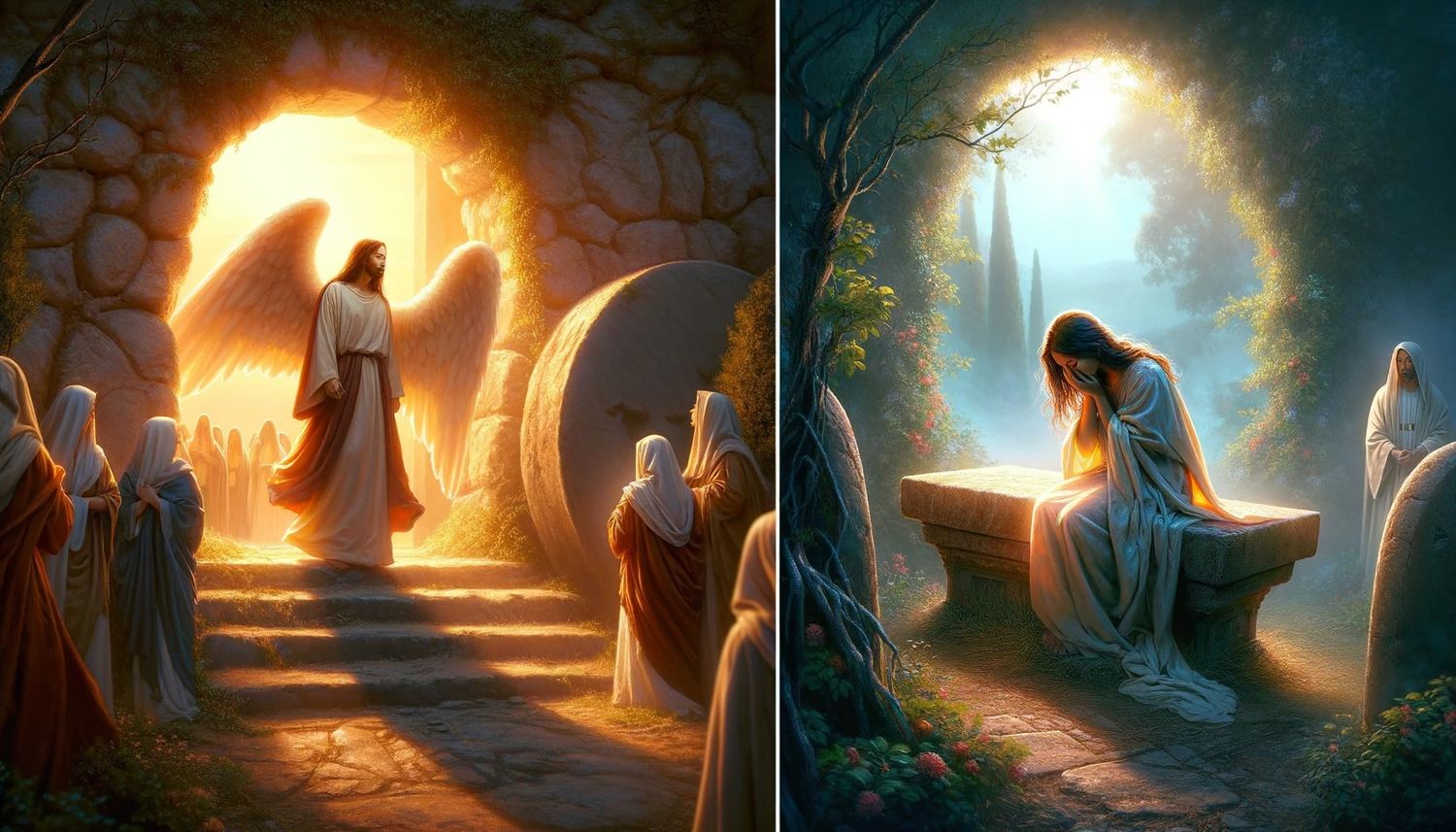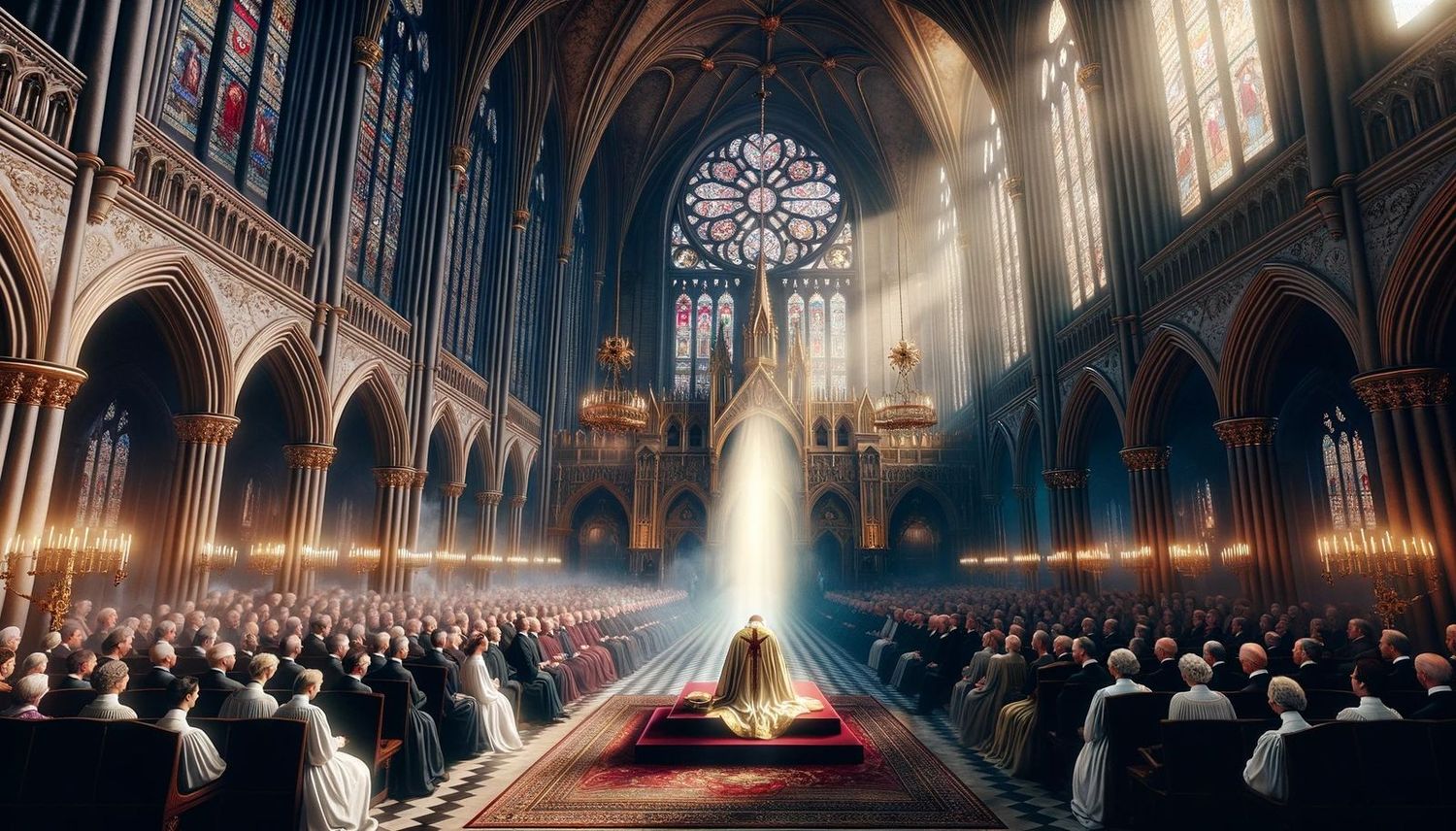Home>Theology and Spirituality>Why Catholicism Contradicts The Bible


Theology and Spirituality
Why Catholicism Contradicts The Bible
Published: February 18, 2024
Jason DeRose, Managing Editor at Christian.net, uses his expertise in religion and journalism to deepen understanding of faith's societal impacts. His editorial leadership, coupled with a strong academic background, enriches the platform’s diverse content, earning him recognition in both journalism and religious circles.
Explore the contradictions between Catholicism and the Bible in this insightful analysis of theology and spirituality. Understand the discrepancies and their impact.
(Many of the links in this article redirect to a specific reviewed product. Your purchase of these products through affiliate links helps to generate commission for Christian.net, at no extra cost. Learn more)
Table of Contents
Introduction
The relationship between Catholicism and the Bible has been a topic of significant debate and discussion for centuries. As one of the oldest and most influential branches of Christianity, Catholicism has a rich tradition and a complex set of beliefs and practices. At the heart of this complexity lies the question of how Catholic teachings align with the teachings of the Bible.
In this article, we will explore several key areas where Catholic doctrine and biblical teachings appear to diverge. By examining the authority of the Bible, the role of tradition in Catholicism, the doctrine of justification, the worship of Mary and the saints, and the sacraments, we will shed light on the apparent contradictions between Catholicism and the Bible.
It is important to approach this topic with sensitivity and respect, recognizing that discussions about religious beliefs can evoke strong emotions and deeply held convictions. Our aim is not to disparage or undermine the Catholic faith but rather to engage in a thoughtful and respectful examination of the differences between Catholic teachings and the biblical text.
As we delve into these areas of divergence, it is crucial to keep in mind that the goal is not to promote division or discord but to foster understanding and dialogue. By exploring these differences, we can gain a deeper appreciation for the nuances of Catholic theology and the ways in which it intersects with and diverges from the teachings of the Bible.
Throughout this exploration, we invite readers to approach the discussion with an open mind and a willingness to consider differing perspectives. By doing so, we can engage in a meaningful exploration of the relationship between Catholicism and the Bible, ultimately enriching our understanding of both.
Read more: Why Catholicism Or Orthodoxy
The Authority of the Bible
The authority of the Bible is a foundational concept in Christianity, serving as the primary source of divine revelation and spiritual guidance for believers. Within Protestant theology, the doctrine of sola scriptura emphasizes the exclusive authority of the Bible in matters of faith and practice. This perspective asserts that the Bible is the ultimate and infallible authority, surpassing all other sources of religious tradition or human interpretation.
From a Protestant standpoint, the Bible is regarded as the inspired and inerrant Word of God, containing the divine revelation of God's will and character. It is seen as the ultimate standard by which all beliefs and practices are to be evaluated. This emphasis on the authority of the Bible has historically been a defining feature of Protestant theology, shaping the interpretation of Christian doctrine and the formulation of religious practices.
In contrast, within Catholicism, while the Bible is revered as a sacred and central text, it is not viewed as the sole authority in matters of faith and practice. Catholic theology acknowledges the significance of tradition, including the teachings of the Church Fathers, ecumenical councils, and the Magisterium, as complementary sources of divine revelation alongside the Bible. This perspective reflects the belief that the authority of the Church, guided by the Holy Spirit, plays a vital role in interpreting and applying the teachings of the Bible within the context of Christian faith.
The divergent views on the authority of the Bible between Protestantism and Catholicism have been a point of contention throughout the history of Christianity. While Protestants emphasize the sufficiency and primacy of the Bible as the ultimate authority, Catholics maintain a broader understanding of divine revelation that encompasses both Scripture and tradition.
This fundamental difference in perspective has significant implications for theological interpretation, religious practices, and the understanding of spiritual truth within the two traditions. It underscores the complex interplay between Scripture, tradition, and the institutional authority of the Church, shaping the distinct approaches to faith and doctrine within Protestantism and Catholicism.
The Role of Tradition in Catholicism
The role of tradition holds profound significance within the framework of Catholic theology and practice. In Catholicism, tradition is regarded as an essential and authoritative source of divine revelation, alongside the Bible. This emphasis on tradition stems from the belief that the teachings and practices passed down through the centuries, guided by the Holy Spirit, are integral to the understanding and expression of the faith.
Central to the Catholic understanding of tradition is the concept of apostolic succession, which asserts the continuity of spiritual authority and doctrinal transmission from the apostles to the present-day Church. This unbroken lineage is seen as a vital link connecting contemporary believers to the teachings and practices of the early Christian community, ensuring the preservation and interpretation of divine revelation within the context of the Church.
Within the Catholic tradition, the Magisterium, comprised of the Pope and the bishops in communion with him, is entrusted with the responsibility of safeguarding and interpreting both Scripture and tradition. This institutional authority plays a pivotal role in discerning the authentic teachings of the faith, resolving doctrinal disputes, and guiding the faithful in matters of belief and practice.
The veneration of sacred tradition in Catholicism encompasses a wide array of beliefs and practices, including liturgical rituals, sacramental theology, doctrinal formulations, and devotional customs. These traditions are deeply rooted in the historical and theological heritage of the Church, reflecting the rich tapestry of faith and spirituality that has evolved over centuries.
While the role of tradition in Catholicism is deeply revered, it has also been a point of contention in discussions with Protestant theology. The Protestant Reformation, which emphasized the primacy of Scripture and critiqued certain Catholic traditions, sparked debates about the proper balance between Scripture and tradition in shaping Christian belief and practice.
The distinctive emphasis on tradition in Catholicism underscores the dynamic interplay between Scripture, tradition, and the authoritative guidance of the Church, shaping the theological landscape and religious identity of the Catholic faith.
This emphasis on tradition underscores the dynamic interplay between Scripture, tradition, and the authoritative guidance of the Church, shaping the theological landscape and religious identity of the Catholic faith.
The Doctrine of Justification
The doctrine of justification stands as a pivotal theological concept that has historically delineated the differences between Catholic and Protestant perspectives. At the heart of this divergence lies the question of how individuals are deemed righteous in the sight of God and how this righteousness is attained.
In Protestant theology, particularly influenced by the teachings of Martin Luther and John Calvin during the Reformation, the doctrine of justification by faith alone (sola fide) holds paramount significance. This doctrine asserts that individuals are justified, or declared righteous, solely through faith in Jesus Christ, apart from any merit or works of their own. This emphasis on faith as the exclusive means of justification underscores the Protestant conviction that salvation is a gift of grace, received through faith in Christ's atoning work on the cross.
Conversely, within Catholic theology, while faith is acknowledged as essential for justification, the doctrine encompasses a broader understanding that incorporates the role of good works and cooperation with divine grace. The Council of Trent, convened in response to the Protestant Reformation, articulated the Catholic perspective on justification, affirming the necessity of faith, good works, and the sacraments in the process of justification. This nuanced understanding emphasizes the transformative nature of justification, wherein believers are not only declared righteous but are also infused with the grace to live out their faith through acts of love and obedience.
The differences in the doctrine of justification reflect contrasting theological emphases on the relationship between faith, works, and divine grace. While Protestants emphasize the exclusive role of faith in securing justification, Catholics emphasize the synergistic cooperation of faith and works within the framework of divine grace.
These divergent perspectives have been a source of theological debate and division, yet they also underscore the profound implications of the doctrine of justification for understanding the nature of salvation, the role of human agency, and the dynamics of divine grace within Christian theology.
The doctrine of justification serves as a poignant example of the complex interplay between faith, works, and divine grace, shaping the theological distinctives of Protestant and Catholic traditions and prompting ongoing dialogue and reflection within the broader Christian community.
The Worship of Mary and the Saints
The veneration of Mary, the mother of Jesus, and the saints holds a prominent place within Catholic devotional practices, reflecting a deeply ingrained aspect of Catholic spirituality. Central to this veneration is the belief in the intercessory role of Mary and the saints, wherein they are viewed as powerful advocates who can intercede on behalf of believers before God. This aspect of Catholic devotion has been a point of theological divergence between Catholicism and Protestantism, prompting discussions about the nature of prayer, intercession, and the role of saints in the life of the Church.
Within Catholic theology, the veneration of Mary and the saints is rooted in the belief that these holy figures, through their exemplary lives and faithful witness, serve as inspiring models of Christian virtue and devotion. The veneration of Mary, in particular, is deeply intertwined with her role as the Theotokos, or the Mother of God, and her unique participation in the redemptive work of Christ. Catholics honor Mary as the preeminent among the saints, venerating her as the Queen of Heaven and acknowledging her as a compassionate intercessor who can bring the prayers of the faithful before her Son.
Similarly, the veneration of the saints reflects the belief in their sanctity and their close communion with God in heaven. Catholics view the saints as exemplars of faith and righteousness, worthy of honor and emulation. The practice of seeking the intercession of the saints is grounded in the conviction that they can offer prayers on behalf of believers and serve as mediators between humanity and the divine.
In contrast, within Protestant theology, particularly in certain denominations influenced by the Reformation, there has been a more cautious approach to the veneration of Mary and the saints. Some Protestant traditions have expressed concerns about the potential for the veneration of Mary and the saints to detract from the unique mediatorial role of Christ and to blur the distinction between the worship due to God alone and the honor accorded to human figures.
The differences in the veneration of Mary and the saints reflect contrasting perspectives on the intercessory role of these holy figures and the nature of prayer within the Christian life. While Catholics emphasize the intercessory power of Mary and the saints as an integral aspect of their spiritual devotion, Protestants have approached this aspect of Catholic practice with varying degrees of reservation, seeking to uphold the centrality of Christ in the life of faith.
The veneration of Mary and the saints stands as a poignant example of the diverse expressions of devotion and intercession within Christian traditions, prompting ongoing dialogue and reflection on the nature of prayer, intercession, and the communion of saints within the broader Christian community.
Read more: Why Is Catholicism A Cult
The Sacraments
The concept of sacraments holds profound significance within the framework of Catholic theology, serving as visible signs of God's grace and presence in the life of the Church and its members. Central to Catholic belief is the understanding that the sacraments, instituted by Christ, convey spiritual blessings and facilitate encounters with the divine through tangible and ritualized means.
Catholicism recognizes seven sacraments: Baptism, Confirmation, Eucharist, Reconciliation, Anointing of the Sick, Holy Orders, and Matrimony. Each sacrament is regarded as a sacred and transformative encounter with God, conveying specific graces and spiritual nourishment to the faithful.
Baptism, the sacrament of initiation, marks the entry of an individual into the Christian community, cleansing them of original sin and initiating them into the life of faith. Confirmation, often administered in conjunction with Baptism, bestows the gifts of the Holy Spirit upon the recipient, empowering them for the journey of discipleship.
The Eucharist, often referred to as the "source and summit" of the Christian life, holds central importance in Catholic worship. Through the Eucharistic celebration, Catholics believe in the real presence of Christ in the consecrated elements of bread and wine, partaking in a profound communion with the body and blood of Christ.
Reconciliation, also known as Penance or Confession, offers the opportunity for believers to seek forgiveness for their sins and be reconciled with God and the Church. The sacrament of Anointing of the Sick provides spiritual strength and healing grace to those facing illness or the frailty of old age, offering comfort and support in times of physical and emotional distress.
Holy Orders and Matrimony are sacraments that confer specific vocations within the Church. Holy Orders ordains individuals as deacons, priests, or bishops, empowering them for the ministry of leadership and service within the ecclesial community. Matrimony sanctifies the union of spouses, imparting grace and blessings upon their marital covenant, inviting them to embody the love and fidelity of Christ's relationship with the Church.
The sacraments in Catholicism are regarded as sacred channels through which God's grace is imparted to the faithful, nurturing their spiritual growth and sustaining them in their journey of faith. These rituals and rites serve as tangible expressions of the divine presence, fostering a deep sense of spiritual communion and transformative encounter with the living God.
The distinctive emphasis on the sacraments in Catholic theology underscores the profound significance of ritualized practices and tangible symbols in conveying the mysteries of faith and nurturing the spiritual life of believers. The sacraments stand as a poignant expression of the dynamic interplay between the material and the spiritual, shaping the religious identity and communal worship of the Catholic faith.
Conclusion
In conclusion, the relationship between Catholicism and the Bible encompasses a complex interplay of theological perspectives, doctrinal emphases, and spiritual practices. The apparent contradictions between certain aspects of Catholic doctrine and the teachings of the Bible have been a point of enduring debate and discussion within the broader Christian community. From the divergent views on the authority of the Bible to the role of tradition, the doctrine of justification, the veneration of Mary and the saints, and the significance of the sacraments, the differences between Catholicism and Protestantism reflect nuanced theological positions and historical developments.
It is essential to approach these differences with a spirit of understanding and respect, recognizing the diverse expressions of Christian faith and the rich tapestry of theological reflection within the Catholic tradition. While acknowledging the divergences, it is equally important to affirm the shared commitment to the core tenets of the Christian faith, including the belief in the triune God, the redemptive work of Christ, and the transformative power of the Holy Spirit.
Engaging in meaningful dialogue and mutual understanding can foster a deeper appreciation for the theological nuances and spiritual insights present within Catholicism and Protestantism. By recognizing the distinct emphases and interpretations of key theological concepts, such as the authority of Scripture, the role of tradition, and the dynamics of salvation, we can cultivate a spirit of unity amidst diversity, honoring the diverse expressions of Christian faith while seeking common ground in our shared devotion to Christ.
Ultimately, the exploration of the relationship between Catholicism and the Bible invites us to embrace a posture of humility and openness, recognizing that the pursuit of theological understanding is an ongoing journey marked by dialogue, reflection, and mutual respect. By engaging in thoughtful and respectful conversations, we can deepen our understanding of the complexities of Christian theology, enrich our appreciation for the diverse expressions of faith within the Christian tradition, and cultivate a spirit of unity amidst the beautiful tapestry of theological diversity.
As we navigate the complexities of theological differences, may we be guided by the spirit of love, humility, and a shared commitment to the pursuit of truth, recognizing that our diverse perspectives contribute to the richness and depth of the Christian faith. In this spirit, may we continue to engage in dialogue, seek understanding, and embrace the unity that transcends our differences, affirming the profound mystery of the Christian faith and the transformative power of God's love in our lives.


